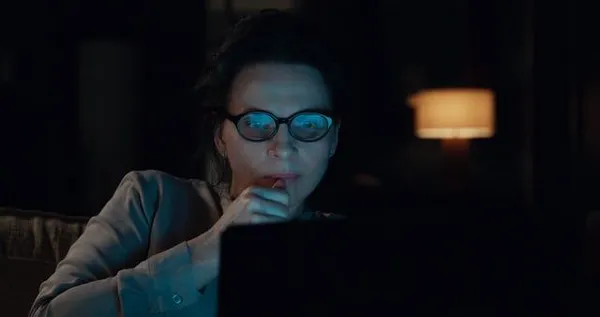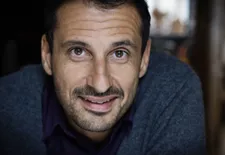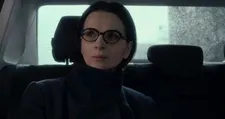 |
| Juliette Binoche: 'Claire is a fascinating character - a woman of a certain age who tries to recapture her youth' Photo: Unifrance |
When director Safy Nebbou started reading the novel Who You Think I Am (Celle que vous croyez), by Camille Laurens, and thought about adapting it for the screen there was the name of only one actress whirling around in his head for the central role: Juliette Binoche.
 |
| Safy Nebbou on maintaining his edge: 'I would not like to be in a comfort zone because that is not a creative place to be' Photo: Unifrance |
“Juliette just came in to my head - and that was it. I knew her a little bit and I had always wanted to work with her. We had tried previously but it hadn’t happened,” says Nebbou, who reveals that he too has had experiences of being duped on social media, which bizarrely happened at the same as he was writing the script. “This woman was Claire’s age in her fifties and pretended to be younger, just like Claire. We corresponded for three months before I discovered the unpleasant truth. Like Claire, she’d used someone else’s picture. I must say I drew a lot of inspiration from this experience to write the screenplay, even reusing some of my own exchanges with her.”
He worked on the adaptation with Julie Peyr and found that the way the novel was written was already quite close to a film script. “It was structured that way, going from reality to virtual reality with one revelation hiding another … We decided to keep that structure and at the same time bring a cinematographic dimension. It has the form of a thriller which attracted me to the book. I could have treated in a sociological way which would have made some sense, but I liked playing around with the idea of genre. There are definitely Hitchcockian undertones,” says Nebbou. “Claire is a fascinating character - a woman of a certain age who tries to recapture her youth. You can’t really do that in real life, but in fiction you can. She makes jump stories to reinvent her lost youth. It is quite moving and touching to watch her believe she is Clara, and can be Clara.”
 |
| Safy Nebbou on Juliette Binoche: 'Juliette just came in to my head - and that was it' Photo: Unifrance |
An avid reader, Nebbou can often find subjects in books. HIs last film In the Forests of Siberia also was based on a novel - by Sylvain Tesson - about a young Frenchman who leaves his comfortable life behind to live in splendid isolation in the Siberian wilderness.
“It had nothing to do with this one,” Nebbou says, adding: “It is not easy to find subjects that are original and also to find a narrative curve that compels me to tell it.” His next film is based on his own original idea which he is writing with filmmaker and writer Virginie Despentes and stars Isabelle Adjani. “It’s a period film about the painter Suzanne Valadon and her son, Maurice Utrillo. It’s really about how this middle-class woman found herself among the great partners of Montmartre at the time. I like finding historical subjects that have a contemporary relevance,” says Nebbou.
 |
| Safy Nebbou: 'It has the form of a thriller which attracted me to the book' Photo: Unifrance |
Has he become more comfortable and relaxed in his professional skin over the years? He ponders the question and then suggests that “in making films you work out an equilibrium. I would not like to be in a comfort zone because that is not a creative place to be. Filmmaking should not feel comfortable - there should be a sense of resistance. It can be very vertiginous and violent, making a film, finding the idea and then the money through to the creative process and the editing and eventually the promotion. You look at film of one hour and 40 minutes and you completely forget that behind it are years of hard work, graft, and grind. If you are making auteur films, it is always a risky business.”
Nebbou, though, clearly would not have it any other way.
- Who You Think I Am is available on Curzon Home Cinema in the UK now
- Read what Francois Civil told us about the film here





















